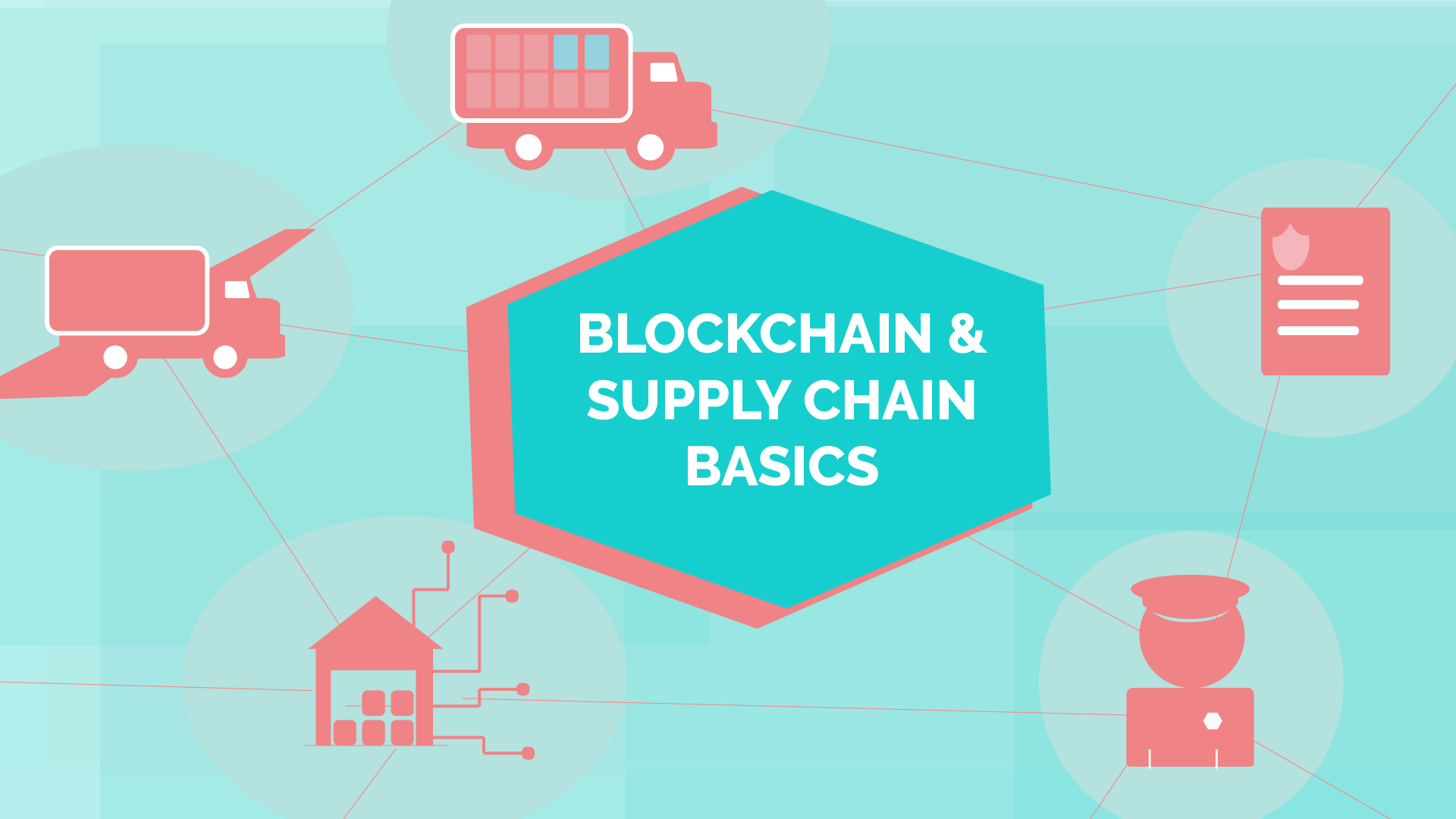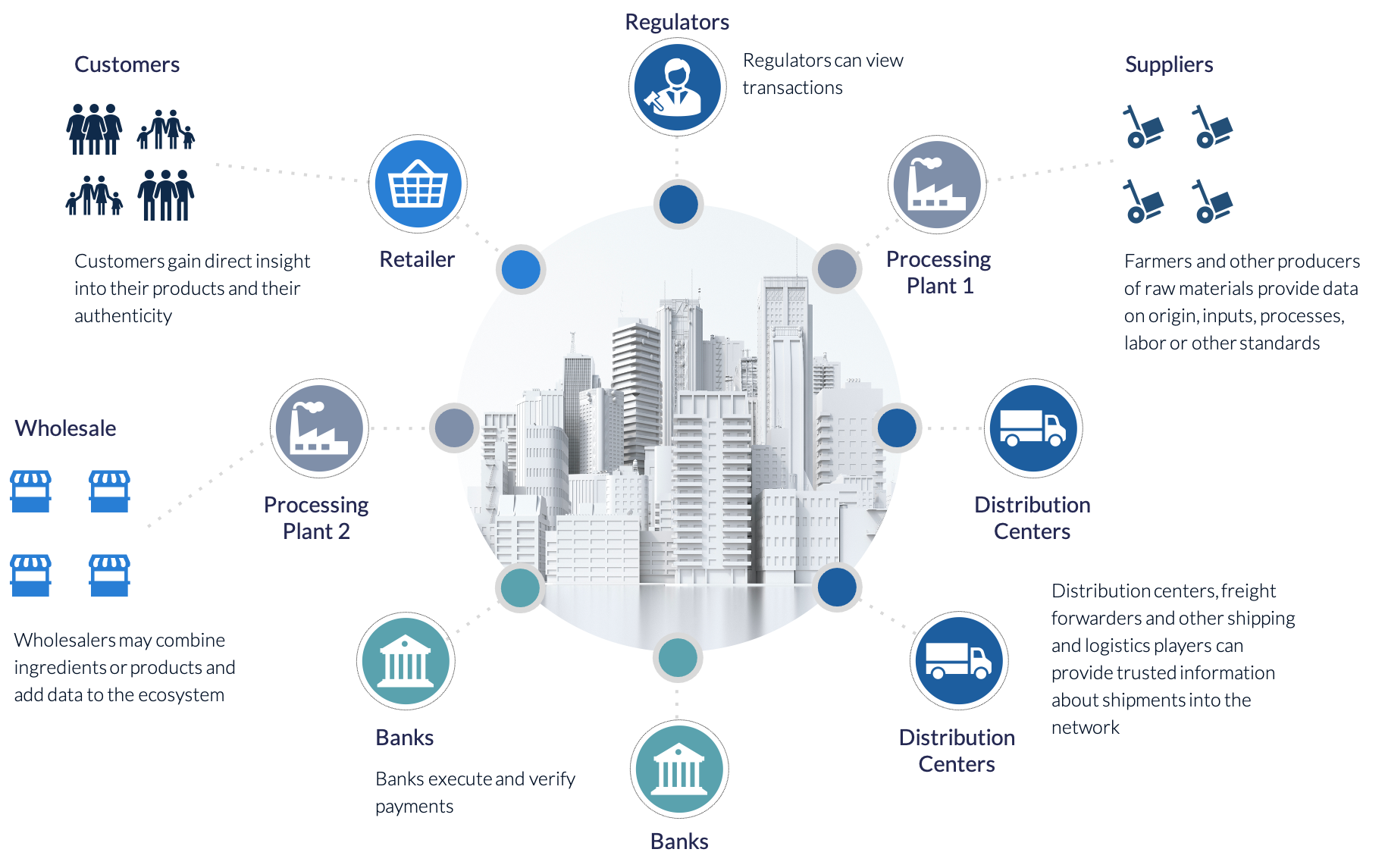Blockchain in Logistics: The Key to Transparent and Efficient Supply Chains

The logistics industry is a crucial component of the global economy, facilitating the movement of goods and materials across borders. However, traditional supply chains often face challenges such as lack of transparency, inefficiencies, and fraud. Blockchain technology has emerged as a potential solution to these problems, offering the potential to transform the logistics industry and enhance its efficiency.

Key Features of Blockchain and its Benefits for Logistics

Blockchain is a distributed ledger technology that maintains a secure record of transactions. It offers several key features that make it well-suited for logistics applications:
- Transparency: Blockchain records all transactions in a public, immutable ledger, providing all participants with real-time visibility into the supply chain. This transparency helps prevent fraudulent activities and builds trust among stakeholders.
- Immutability: Once a transaction is recorded on the blockchain, it cannot be altered or deleted. This ensures that data integrity is maintained, eliminating the risk of unauthorized alterations and ensuring the reliability of the supply chain data.
- Efficiency: Blockchain eliminates the need for intermediaries in supply chain operations. Automated processes and smart contracts streamline tasks, reducing transaction time, paperwork, and labor costs.
- Traceability: Blockchain allows for the tracking of goods and materials throughout the supply chain, providing a complete provenance record. This traceability enhances accountability, prevents counterfeiting, and enables quick responses to recalls.
Applications of Blockchain in Logistics
Blockchain technology has a wide range of applications within the logistics industry:
- Track and Trace: Blockchain provides real-time tracking of shipments, enabling stakeholders to monitor the movement of goods from origin to destination.
- Proof of Origin: Blockchain helps establish the authenticity and origin of products, preventing fraud and protecting consumers.
- Supply Chain Optimization: Blockchain enables data sharing among supply chain partners, allowing for real-time adjustments to optimize inventory management, demand forecasting, and transportation planning.
- Document Management: Blockchain provides a secure and efficient way to manage logistics documentation, reducing paperwork and eliminating the risk of losing or tampering with important documents.
- Customs Clearance: Blockchain can streamline customs clearance processes by automating data exchange and verification, reducing delays and costs associated with paperwork and manual inspections.
Challenges and Future Prospects
While blockchain shows great promise for the logistics industry, several challenges need to be addressed for its widespread adoption:
- Scalability: Current blockchain platforms may not be able to handle the high volume of transactions required for large-scale logistics applications.
- Interoperability: Different blockchain platforms may not be compatible with each other, leading to challenges in data sharing and integration.
- Regulatory Barriers: Clear regulations and standards are needed to govern the use of blockchain in logistics to ensure data privacy, security, and compliance.
Despite these challenges, the future of blockchain in logistics is bright. As technology continues to evolve and regulations are implemented, blockchain is poised to transform the industry, making supply chains more transparent, efficient, and secure.## Blockchain In Logistics: The Key To Transparent And Efficient Supply Chains
Executive Summary
Blockchain technology has the potential to revolutionize the logistics industry by providing a secure, transparent, and efficient way to track and manage supply chains. By leveraging blockchain’s distributed ledger system, businesses can improve visibility, reduce costs, and enhance the overall efficiency of their supply chain operations. This article explores the key benefits and applications of blockchain technology in logistics, examining its potential to transform the industry and drive innovation.
Introduction
The logistics industry is a complex and multifaceted ecosystem, involving the movement of goods and services from origin to destination. Traditional supply chain management systems often rely on fragmented and paper-based processes, leading to inefficiencies, delays, and a lack of transparency. Blockchain technology offers a groundbreaking solution to these challenges, enabling secure and real-time tracking of goods, documents, and payments throughout the supply chain.
Benefits of Blockchain in Logistics
-
Increased transparency: Blockchain technology provides a shared and immutable ledger, where all transactions and data related to the supply chain are recorded in a secure and tamper-proof manner. This transparency enhances trust among participants and reduces the risk of fraud or errors.
-
Improved efficiency: By eliminating intermediaries and automating processes, blockchain streamlines supply chain operations, reducing costs, and improving speed and accuracy. This efficiency translates into lower overhead costs and faster delivery times.
-
Enhanced security: Blockchain’s decentralized nature and cryptographic algorithms ensure the integrity and confidentiality of data. This robust security measures protect against unauthorized access, data breaches, and malicious activities.
-
Optimized visibility: Blockchain provides a real-time view of the entire supply chain, allowing businesses to track the movement of goods, monitor inventory levels, and identify bottlenecks. This visibility enables proactive decision-making and improved coordination between stakeholders.
-
Reduced time and costs: Blockchain eliminates the need for manual data entry, reconciliation, and documentation, reducing administrative costs and speeding up the overall supply chain process. This time-saving can lead to significant cost savings for businesses.
Applications of Blockchain in Logistics
-
Supply chain management: Blockchain can be used to track the movement of goods throughout the supply chain, from origin to destination. This visibility enhances inventory management, reduces theft and counterfeiting, and improves coordination among stakeholders.
-
Document management: Blockchain can securely store and manage shipping documents, such as bills of lading, certificates of origin, and invoices. This digitization eliminates the need for paper-based processes, reduces errors, and streamlines customs clearance.
-
Payment processing: Blockchain provides a secure and transparent platform for payment processing in the logistics industry. This eliminates the risk of fraud, reduces transaction costs, and speeds up the settlement process.
-
IoT integration: Blockchain can be integrated with IoT devices to enable real-time monitoring of goods and assets throughout the supply chain. This data can be used to optimize transportation routes, predict maintenance needs, and improve overall efficiency.
-
Sustainability tracking: Blockchain can be used to trace the environmental impact of supply chain operations. This visibility enables businesses to identify areas for improvement, reduce carbon footprint, and enhance sustainability practices.
Conclusion
Blockchain technology is poised to revolutionize the logistics industry, providing a secure, transparent, and efficient way to manage supply chains. By leveraging its distributed ledger system, businesses can enhance visibility, reduce costs, improve security, and optimize their supply chain operations. As the technology continues to evolve, we can expect to see even more innovative applications of blockchain in logistics, driving further innovation and transformation in the industry.
Keyword Tags
- Blockchain
- Logistics
- Supply chain management
- Efficiency
- Transparency
FAQs
-
Q: How does blockchain improve transparency in the supply chain?
A: Blockchain provides a shared and immutable ledger, where all transactions and data are recorded, improving trust and reducing the risk of fraud or errors. -
Q: What are the benefits of using blockchain for document management in logistics?
A: Blockchain securely stores and manages shipping documents, eliminating the need for paper-based processes, reducing errors, and streamlining customs clearance. -
Q: How does blockchain enhance sustainability in the supply chain?
A: Blockchain tracks the environmental impact of supply chain operations, enabling businesses to identify areas for improvement, reduce carbon footprint, and enhance sustainability practices. -
Q: What are some potential challenges to implementing blockchain in logistics?
A: Potential challenges include scalability issues, interoperability between different blockchain platforms, and the need for industry-wide collaboration and standardization. -
Q: What are the future prospects for blockchain in logistics?
A: Blockchain is expected to drive further innovation and transformation in logistics, with potential applications in areas such as autonomous transportation, smart contracts, and predictive analytics.
